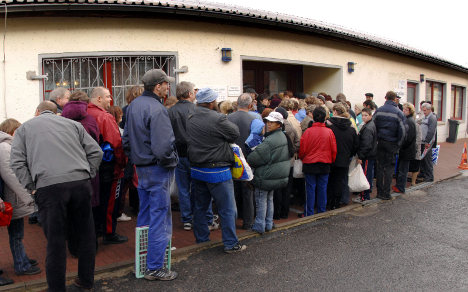Low unemployment numbers are widely being held up as evidence that the German economy is not struggling as much as that of its neighbours, with Chancellor Angela Merkel mentioning it in her New Year’s address.
But a row has blown up over older jobseekers no longer included in unemployment statistics.
The Süddeutsche Zeitung newspaper reported on the missing 100,000 jobseekers on Friday, prompting Green politicians to accuse the government of tweaking the numbers.
The paper said the government had admitted that those over 58 who were receiving the lowest unemployment benefits, known as Hartz IV, were struck from jobless statistics if they had been on that support for a year or more, without having been offered a proper job. That rule has been in place since 2009, the paper said.
The government admitted that its November 2011 figure of 275,400 unemployed people between the ages of 55 and 65 would be pushed up to 380,000 if those people were included. The “missing” people would bring the percentage of Hartz IV recipients aged between 55 and 65 from 14.2 percent to 18.6 percent, the government said.
But the Labour Ministry said there was nothing tricky about the figures, saying in a statement, “The method of statistics gathering is not decisive; rather that older people remain in work and can quickly get back into work.”
It said that the people concerned were not missing from statistics but were included in the section labelled “under employment”.
DPA/The Local/hc



 Please whitelist us to continue reading.
Please whitelist us to continue reading.
Member comments